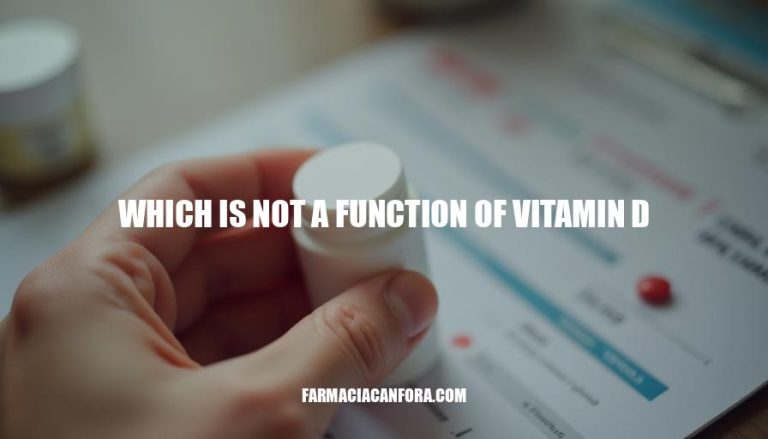


Vitamin D is super important for our overall health. It helps our bodies absorb calcium, which keeps our bones and teeth strong. It also helps our immune system fight off infections and diseases.
Plus, it affects how our cells grow and work together.
It’s just as important to know what vitamin D doesn’t do. If we think it can do everything, we might make bad health choices or rely too much on supplements. Understanding its limits helps us appreciate its real impact and make informed decisions about staying healthy.
Vitamin D does not regulate blood sugar levels directly. While it plays a role in calcium and phosphorus metabolism, it is not responsible for insulin secretion or glucose uptake, which are primarily managed by the pancreas and insulin.
Vitamin D does not directly influence hair growth. Although deficiencies may correlate with hair loss, vitamin D itself does not stimulate hair follicles or promote hair regeneration.
Vitamin D does not detoxify the body.
Detoxification is a function of the liver and kidneys, which process and eliminate toxins from the body.
Vitamin D does not directly improve cardiovascular health. While some studies suggest a correlation between vitamin D levels and heart health, it does not directly regulate blood pressure, cholesterol levels, or heart function.
Vitamin D does not enhance athletic performance. Although it supports bone health and muscle function, it does not directly increase strength, endurance, or physical performance.
Vitamin D does not prevent or cure infections.
It supports the immune system but does not act as an antimicrobial agent or directly eliminate pathogens.
Vitamin D does not regulate mood or treat depression. While it may influence serotonin production indirectly, it is not a primary factor in mood regulation or a treatment for mental health conditions.
Vitamin D does not aid in weight loss. It does not directly influence metabolism or fat burning, although deficiencies might affect overall health and energy levels.
Vitamin D does not improve vision.
It plays no role in the function of the eyes or the prevention of vision-related conditions.
Vitamin D does not directly affect skin health. While it is synthesized in the skin through sunlight exposure, it does not treat skin conditions or improve skin texture or appearance.
However, it’s essential to understand its limitations to make informed decisions about staying healthy.
In summary, vitamin D is essential for bone and immune system function, but it has its limitations. Understanding what it doesn’t do helps us appreciate its real impact and make informed decisions about staying healthy. Accurate knowledge is key to promoting overall health awareness, allowing us to focus on the benefits of vitamin D while avoiding misinformation that may lead to bad health choices or over-reliance on supplements.